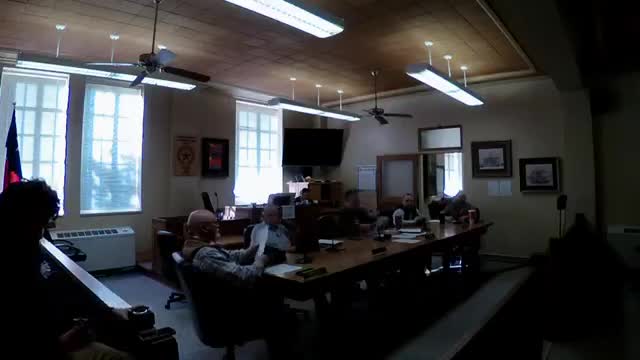Residents press Young County court for protections as data center and solar proposals advance
Get AI-powered insights, summaries, and transcripts
Subscribe
Summary
Dozens of residents warned commissioners about environmental, traffic and land‑use impacts of proposed data centers and a solar farm, urged strict contract conditions and public release of agreements; commissioners said abatements are temporary contractual tools and pledged public review before any vote.
Dozens of residents at Young County’s Nov. 10 commissioners court urged elected officials to protect long‑term residents, require environmental safeguards and limit tax incentives for proposed data centers and solar farms in the county.
Multiple speakers said they had collected a petition of about 1,600 signatures opposing the projects and called on the court to insist on clear, public protections before granting any incentives. "I'm against the data center," said Debbie Rhodes, a resident who asked commissioners to keep an open mind and "treat everybody fairly." Another resident said the petition represented roughly a quarter of the county’s voting electorate in some precincts and pressed officials to post permitting documents online to avoid burdensome public‑records requests.
Citizens raised a long list of concerns: water runoff and potential contamination of Briar Creek and Grand Lake; damage to rural roads during long construction phases; noise, light and setback protections; and the permanence of solar panel fields versus other land uses. Phil Denny told the court he believed equipment and road work for a solar project were already under way and asked whether abatements should be granted after land deals and construction activity had begun.
County officials and staff described the tools available at the county’s disposal: Texas law limits counties’ zoning authority, they said, so the primary county lever to require conditions is a contractual abatement or pilot agreement tied to creation of a reinvestment zone. Those agreements would be temporary and enforceable by financial penalties or voiding the contract; ordinances and longer‑term land use rules are primarily municipal responsibilities. "That pilot abatement agreement is the only place where a county is allowed to put in noise ordinances, setbacks, green space requirements, water restrictions," one official said.
Commissioners said they were still in a learning phase — hiring or interviewing consultants experienced with solar and data‑center deals — and promised public outreach. One official told the court the county intends to release any negotiated agreement at least 30 days before a vote so residents can review it, ask questions and attend hearings.
Residents also challenged economic arguments for incentives. Several warned that data centers can offer relatively few local jobs requiring local, specialized skills and that heavy abatements could shift costs for services to other taxpayers if promised offsets do not materialize. A consultant‑style analysis was described as necessary to estimate the net fiscal impact before any abatement is finalized.
Next steps: the court said it will continue negotiating with developers, vet proposed agreements through consultants and make negotiated terms public before any final vote is scheduled.
